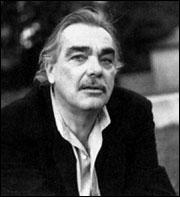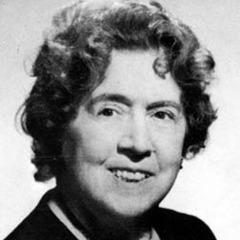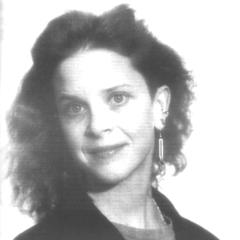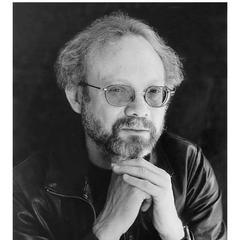Anna Journey Quotes
-
-
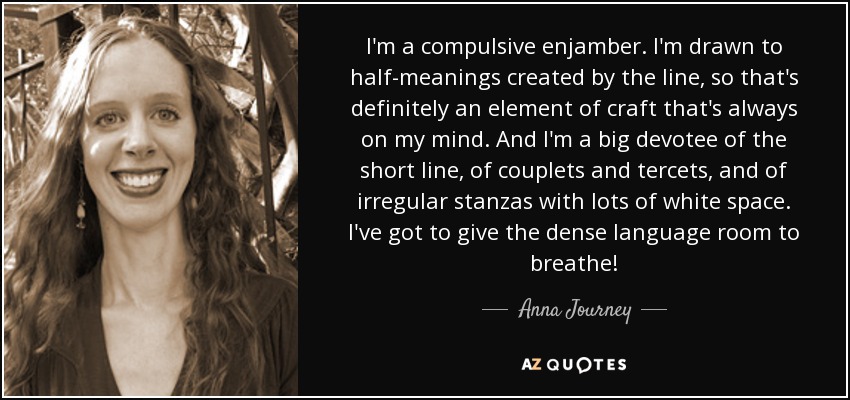 I'm a compulsive enjamber. I'm drawn to half-meanings created by the line, so that's definitely an element of craft that's always on my mind. And I'm a big devotee of the short line, of couplets and tercets, and of irregular stanzas with lots of white space. I've got to give the dense language room to breathe!
I'm a compulsive enjamber. I'm drawn to half-meanings created by the line, so that's definitely an element of craft that's always on my mind. And I'm a big devotee of the short line, of couplets and tercets, and of irregular stanzas with lots of white space. I've got to give the dense language room to breathe!
-
-
